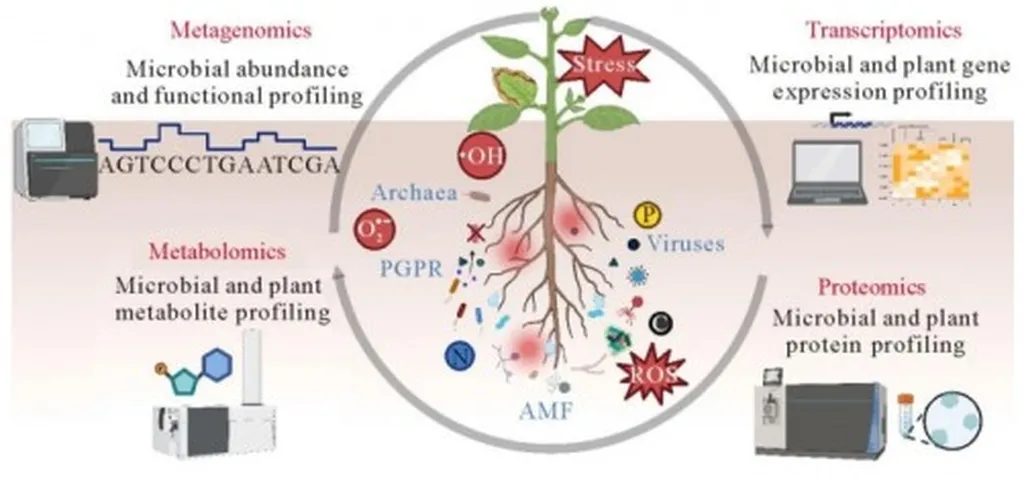In the face of escalating soil salinity and abiotic stresses, a groundbreaking study published in *Plant Stress* offers a glimmer of hope for the agriculture sector. Researchers, led by Qian Xu of the Bio-Agriculture Institute of Shaanxi, have uncovered the pivotal roles that two specific bacteria, *Arthrobacter sp.* and *Bacillus mucilaginosus*, play in detoxifying sodium and enhancing silicon bioavailability. These microbial heroes could revolutionize soil quality and crop productivity, providing a sustainable solution to some of agriculture’s most pressing challenges.
The study highlights how *Arthrobacter sp.* works tirelessly to break down organic compounds and produce biosurfactants that alter soil chemistry. “This bacterium improves water infiltration, aeration, and soil aggregation—all of which are essential for reducing sodium toxicity,” explains Xu. By producing organic acids that chelate sodium ions, *Arthrobacter sp.* prevents these harmful ions from being absorbed by plant roots, thereby mitigating their detrimental effects.
On the other hand, *Bacillus mucilaginosus* excels at solubilizing silicon compounds, making this essential nutrient more accessible to plants. “It generates the organic acids and enzymes needed to decompose silicate minerals and release soluble silicon into the soil,” Xu notes. Plants that absorb more silicon become more resilient to abiotic stressors such as drought, salinity, and heavy metal toxicity, leading to better growth and reduced stress damage.
The synergistic use of *Arthrobacter sp.* and *Bacillus mucilaginosus* presents a viable strategy for enhancing crop productivity and soil quality. Field experiments have demonstrated significant yield improvements in saline areas, supporting sustainable farming practices. “Clarifying the molecular mechanisms underlying these bacteria’s actions, such as the role of organic acids and microbial enzymes in mineral solubilization and the control of stress-related genes in plants, should be the main goal of future research,” Xu emphasizes.
The commercial implications of this research are profound. As the agriculture sector grapples with the impacts of climate change and soil degradation, microbial biofertilizers offer an eco-friendly and cost-effective solution. By harnessing the power of these beneficial bacteria, farmers can improve soil health, enhance crop resilience, and ultimately boost yields. This could pave the way for more sustainable and productive agricultural practices, ensuring food security in an increasingly challenging environment.
As the world seeks innovative solutions to the pressing issues of soil salinity and abiotic stresses, the findings published in *Plant Stress* by lead author Qian Xu of the Bio-Agriculture Institute of Shaanxi provide a promising path forward. The study not only sheds light on the critical roles of *Arthrobacter sp.* and *Bacillus mucilaginosus* but also opens up new avenues for research and commercial applications in the agriculture sector. By understanding and leveraging these microbial interactions, we can cultivate healthier soils and more resilient crops, securing a sustainable future for agriculture.

